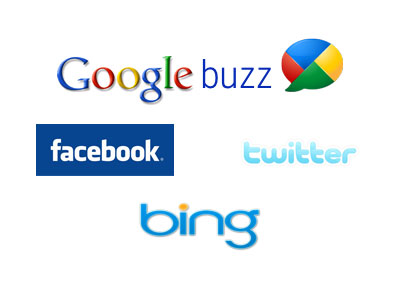What’s the buzz, tell me what’s a-happenin’,
What’s the buzz, tell me what’s a-happenin’,
What’s the buzz, tell me what’s a-happenin’,
What’s the buzz, tell me what’s a-happenin’,Why should you want to know?
Don’t you mind about the future?
Don’t you try to think ahead?
Save tomorrow for tomorrow;
Think about today instead.– “What’s the Buzz?” from Jesus Christ Superstar by Andrew Lloyd Webber
Back in the Good Ol’ Days „¢, AOL had dominance in the online world. It started as a self-contained entity with its own news, shopping, and social interactions. The “Internet” was this other stuff that you had to pay extra to get to on a per minute basis, unless you purchased AOL’s more expensive unlimited plan. In fact, less savvy users often thought that AOL WAS the Internet, and couldn’t imagine accessing information through any other method. Browser? What’s a browser?
Fast forward a decade or so and we like to think we’re so much better off with so many options, especially within the realm of searching and social networking. However, there’s much evidence today’s social networking corporations have the same attitudes as AOL did. They only want you to play in their sandbox.
Bing
Let’s start alphabetically with Bing.com. While not a social networking site, they have inherited all of the exclusivity of their parent company, Microsoft. They have even invented their own malady, Search Engine Overload, to scare others toward their “decision” engine.” I think what sent me over the edge was when I tried to install their Bing 3D Maps, supposedly their answer to Google Earth. I go the following message:
Make Bing my default search engine and prevent other programs from interfering with my choice.
If I had checked that box I would have been locked into Bing permanently, I guess. The second part of that statement, “interfering with my choice,” is deliberately misleading. If you click this box, you have no choice.
